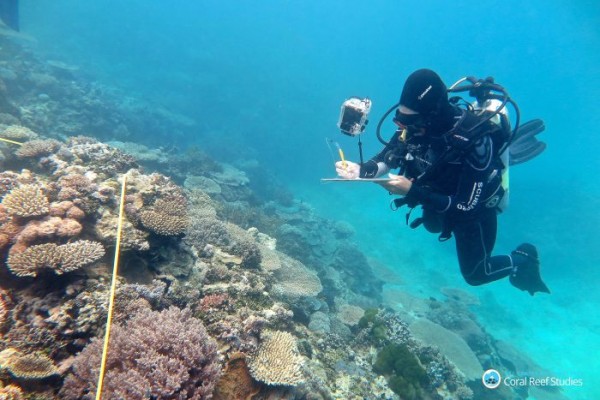By Ana Verayo, | November 30, 2016

Most of the losses in 2016 have occurred in the northern, most-pristine part of the Great Barrier Reef. (ARC Coral Reef Studies)
The Great Barrier Reef is dying, and scientists say that this is the worst coral bleaching event ever recorded due to warming water temperatures, according to a new study.
The most devastated area of the reef in the past nine months is estimated to be a massive 700-kilometer region, accounting for 67 percent of the entire northern reef system in Australia.
Like Us on Facebook
According to Terry Hughes of the Australian Research Council's Center of Excellence for Coral Reef Studies at the James Cook University, most coral losses this year occurred in the northern part of the Great Barrier Reef which is also the most pristine. This part had eluded two bleaching events back in 1998 and 2002, however, this time, it has been severely affected.
Hughes added that the southern part of the reef escaped with minor damage that accounts for two-thirds of the entire southern region of the reef. Scientists have determined that rising sea temperatures was prevented from entering this region due to cooler waters from the Coral Sea.
In this new study, scientists estimate that the ravaged northern region of the Great Barrier Reef will need 10 to 15 years to recover from this environmental disaster. However, many scientists are concerned that a fourth bleaching event in the region can disturb the growth of lost corals.
Australia is due to report about the overall health status of the reef to UNESCO world heritage committee to develop approaches and strategies to save the Great Barrier Reef.
When the federal government of Australia completes this report, UNESCO will have to decide whether to reconsider listing the Great Barrier Reef on the list of world heritage sites that are in danger.
This intensive report from the government will reveal funding plans and how to implement long-term sustainability plans including the major causes of coral bleaching in the region in its Reef 2050 program.
Local government agencies estimate that 22 percent of the reef was killed under this one bleaching event, as warmer than usual waters kill coral. When this happens, algae living in the coral, which is also their major source of food, will escape due to stressful temperatures, transforming the corals into white which indicates poor coral health and imminent death.
-
Use of Coronavirus Pandemic Drones Raises Privacy Concerns: Drones Spread Fear, Local Officials Say

-
Coronavirus Hampers The Delivery Of Lockheed Martin F-35 Stealth Fighters For 2020

-
Instagram Speeds Up Plans to Add Account Memorialization Feature Due to COVID-19 Deaths

-
NASA: Perseverance Plans to Bring 'Mars Rock' to Earth in 2031

-
600 Dead And 3,000 In The Hospital as Iranians Believed Drinking High-Concentrations of Alcohol Can Cure The Coronavirus

-
600 Dead And 3,000 In The Hospital as Iranians Believed Drinking High-Concentrations of Alcohol Can Cure The Coronavirus

-
COVID-19: Doctors, Nurses Use Virtual Reality to Learn New Skills in Treating Coronavirus Patients







